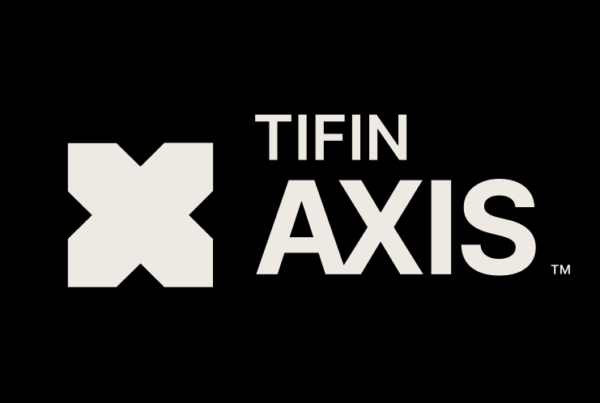Hi, Alex. Welcome to our Interview Series. Please tell us a little bit about your role and responsibilities at FLYR. How did you arrive at the idea of starting an AI company?
As CEO of FLYR, my responsibilities primarily revolve around setting the strategic direction for the company, working with our leadership team and investors to work towards that vision, and spending time with customers to validate their needs and relay the difference we can make for them. I have always been passionate about both AI and aviation, so my intent from the onset had been to create a company that combined the two.
What is FLYR and what are your core offerings?
FLYR is a technology company that provides a comprehensive, AI-based platform for airlines and other travel and transportation companies to help inform or automate all their key commercial decisions.
We had the benefit of selecting key technologies and developing our platform from scratch without any of the legacy technology constraints found elsewhere. Because feeding sophisticated deep learning algorithms (an advanced form of AI) requires lots of data, we handle most of our customers’ heavy lifting related to data ingestion and management. All of this data, KPIs, forecasts, and automation are presented to decision-makers in a single ‘pane of glass’ to make commercial decisions easier and more informed.
Our overall offering can roughly be divided into three main solutions. Our AI-driven Revenue Intelligence suite to help unify commercial decisions across teams and automate pricing performance. Our Advanced Retailing and Fulfillment suite to replace complex and outdated inventory and order management processes. And our Digital Customer Experiences suite to enable airlines to optimize what and how they sell across channels. These solutions help our partners optimize their revenue, cost, and customer experiences.
Which industries are you currently targeting? What problems are you solving for your customers using AI?
FLYR’s core business revolves around the commercial aviation industry. We provide solutions to passenger airlines as well as cargo carriers. Over time, we will apply our platform to hotels thanks to the acquisition of London-based Pace Revenue, and we see an opportunity to assist other transportation verticals as well due to their similar needs, including rental cars, railways, and cruise lines.
As for the kinds of problems we solve for customers, we help them automate and inform all key commercial decisions, including pricing, capacity planning, marketing spend allocation, and forecasting financial performance to enhance existing top-down reporting with granular bottom-up insight.
Tell us more about your advanced deep learning technology for pricing and revenue management.
Deep neural networks are particularly adept at understanding how every data point across many data inputs spanning the historic and current network correlates to one another. With it, we do a better job of predicting likely outcomes and driving more informed decisions that lead to improved commercial planning confidence and outcomes.
One of the most exciting aspects of our technology is its ability to rapidly adapt to changing market conditions and provide real-time adjustment of pricing strategies or revenue and demand forecasts. Airlines recognize the importance of quickly responding to a changing environment and planning further ahead than traditional methods allow for.
Your recent announcement with Cyprus Airways created a buzz in the airline industry. Could you elaborate on the outcomes you are hoping to achieve with this collaboration?
Similar to engagements at Avianca and JetBlue, FLYR and Cyprus Airways’ collaboration is heavily centered around dynamically optimizing pricing strategies, improving decision-making by various commercial functions, and enhancing customer experiences across channels. A great example is the much more flexible management of ancillary offerings – a la carte products like seat selection, luggage, and fare families. Cyprus Airways’ goal is to become the leading airline of the Mediterranean, and we’re thrilled to help them achieve that through the use of our advanced solutions.
The airline industry is constantly on the target list of cybercriminals. How does your platform secure itself from imminent attacks on digital assets in cloud?
Cyber security is very important to us. As a cloud-born company, we take full advantage of the latest security capabilities made available by major cloud vendors such as Google, including data encryption at rest, Identity and Access Management (IAM) to limit access to only those that need it, real-time access observability, DDoS detection, and prevention, etc. Given our enterprise DNA, we leverage zero-trust security policies across all systems and services. To help scale rapidly depending on customer demand, we leverage Infrastructure-as-a-Service (IaaS) capabilities to automate all of our resource provisioning and management needs. This results in minimizing human interventions that could create accidental or intentional security risks for our customers.
Please tell us more about the role of AI and machine learning in logistics transformation:
Logistics industries have been slower to adopt newer technologies due to complex operational tie-ins, third-party dependencies, and a generally high barrier to entry. At the same time, this presents tremendous untapped potential.
With Artificial Intelligence, in particular deep learning systems, we can increase the level of automation for tasks that currently require manual intervention. Some of these opportunities are back-office use cases like anomaly or fraud detection that are not unique to travel and logistics. FLYR however is hyper-focused on resolving commercial inefficiencies by forecasting outcomes proactively rather than simply enabling a reactive response.
We found it critical to help educate and train our customers’ organizations on how AI works and how to interact with them. Strong performance alone is simply insufficient to drive the adoption of AI, requiring robust change management that drives understanding and trust.
Your take on the future of AI-based revenue management platforms:
Revenue Management platforms are an excellent example of where AI can be tapped by travel providers, ranging from narrow applications to solving very specific problems like better forecasts to inform a single commercial function, to broad utilization across all demand generation, price optimization, capacity management, and cross-functional reporting.
One of the biggest challenges for AI in travel and transportation, and an area FLYR has invested in tremendously, is the ability to correlate the context under which a decision is made to the context under which an outcome is observed. By doing this well, we get to understand the problems we try to solve and the solutions are most likely to represent a step change in performance.
Solving this challenge of correlating inputs and outputs under always-changing conditions took several years in computer vision such as self-driving vehicles, and more recently generative AI such as ChatGPT. FLYR is the company that invests millions of dollars towards solving this for an industry that represents well over 10% of global GDP, travel, and transportation.
The post AiThority Interview with Alex Mans, Founder and CEO at FLYR Labs appeared first on FLYR Labs.




